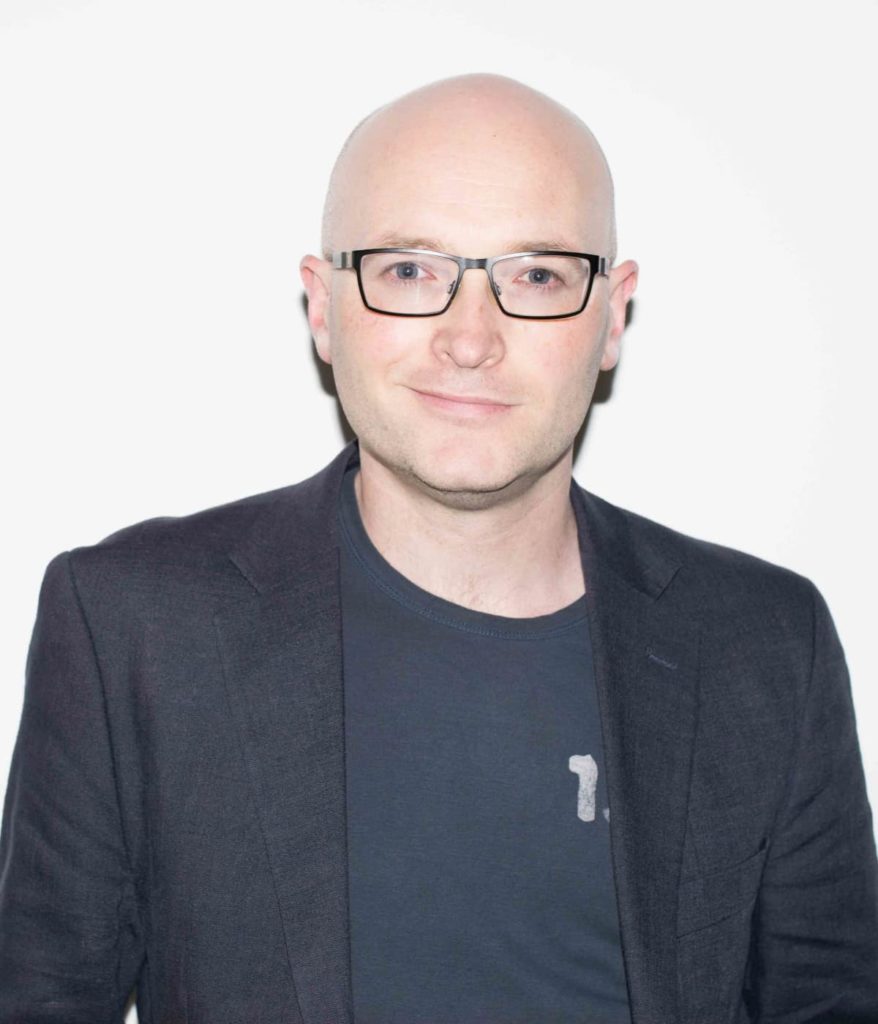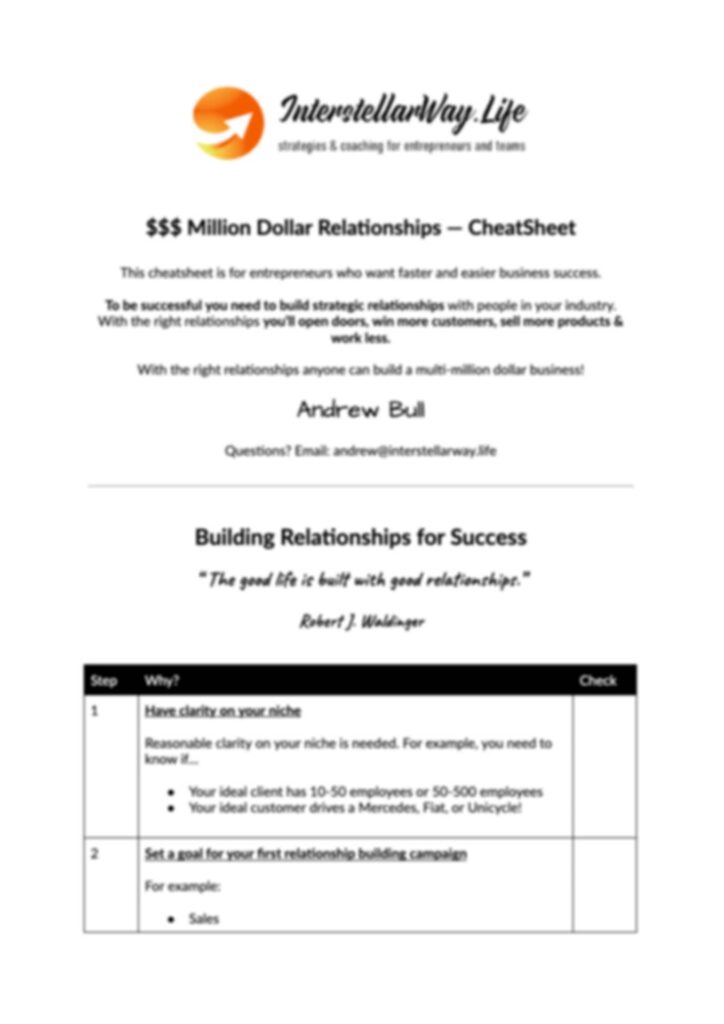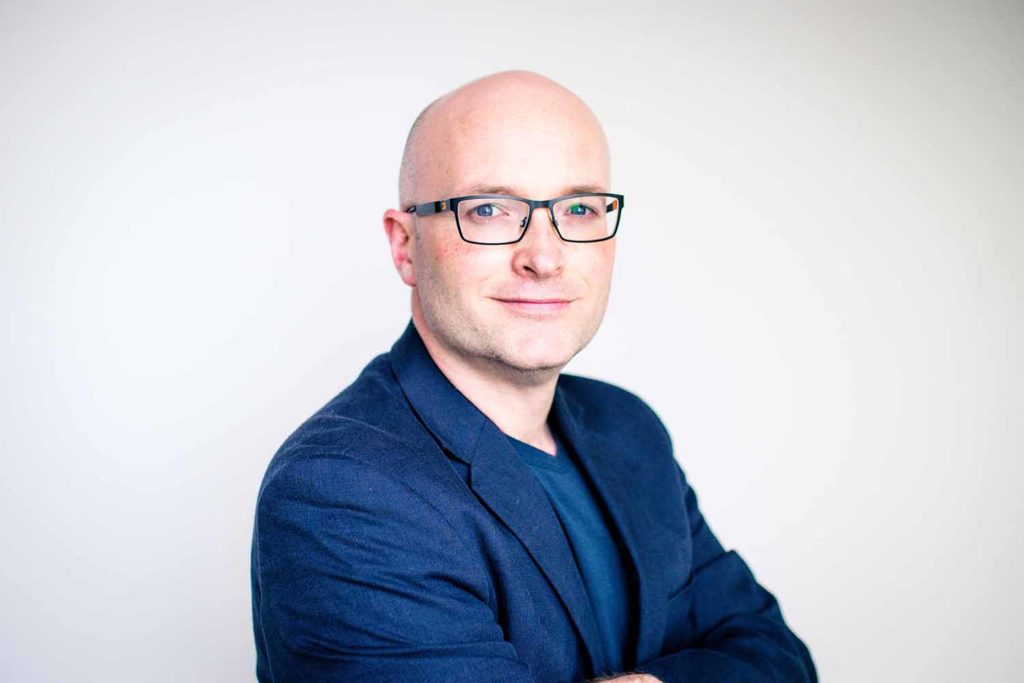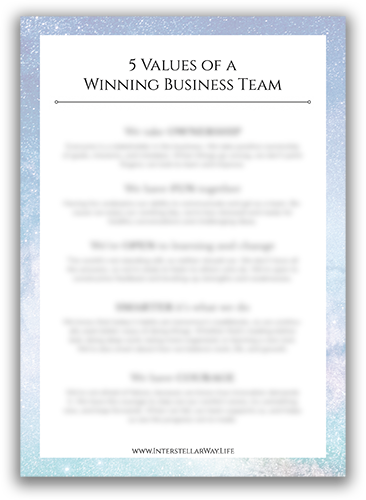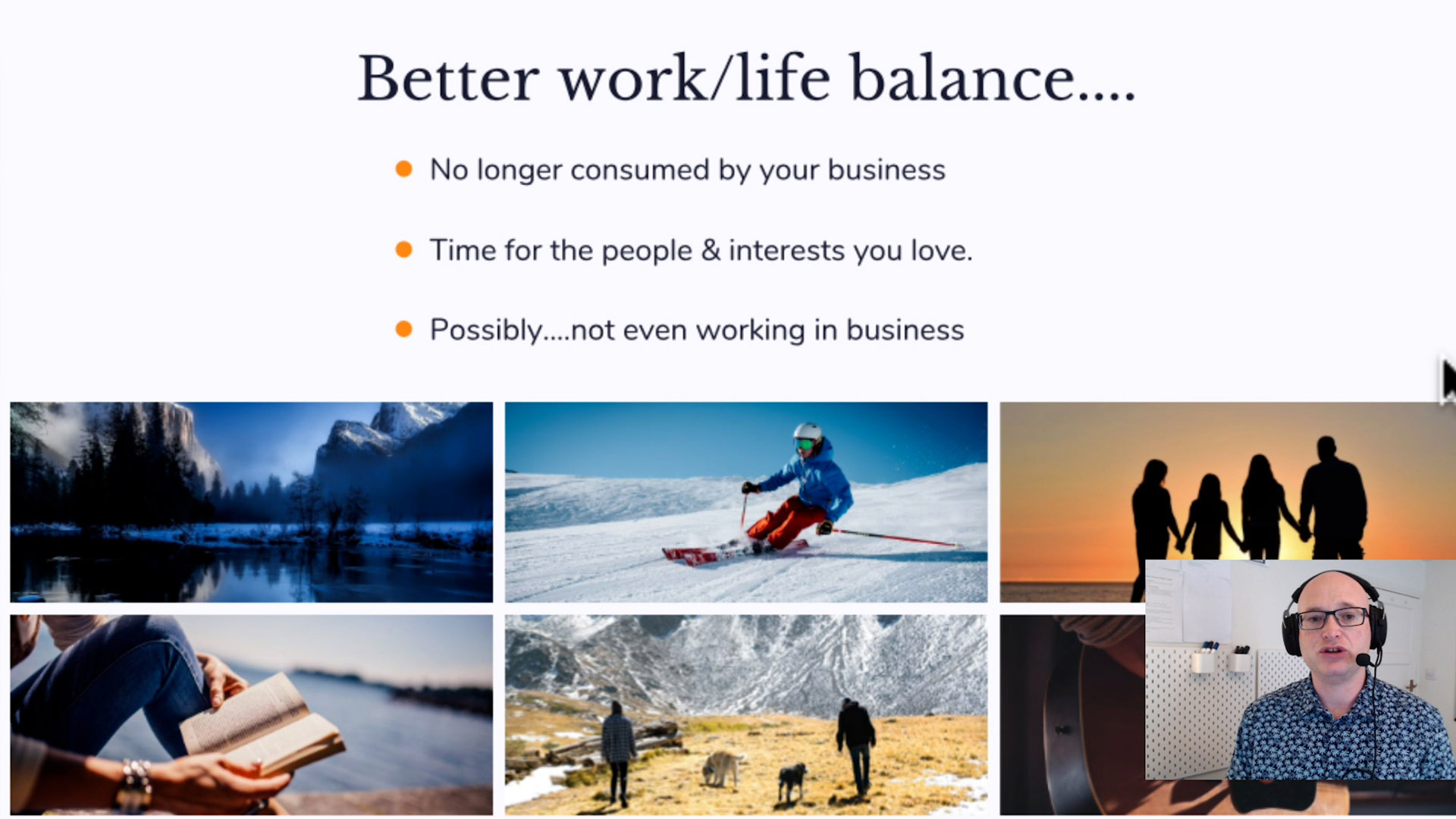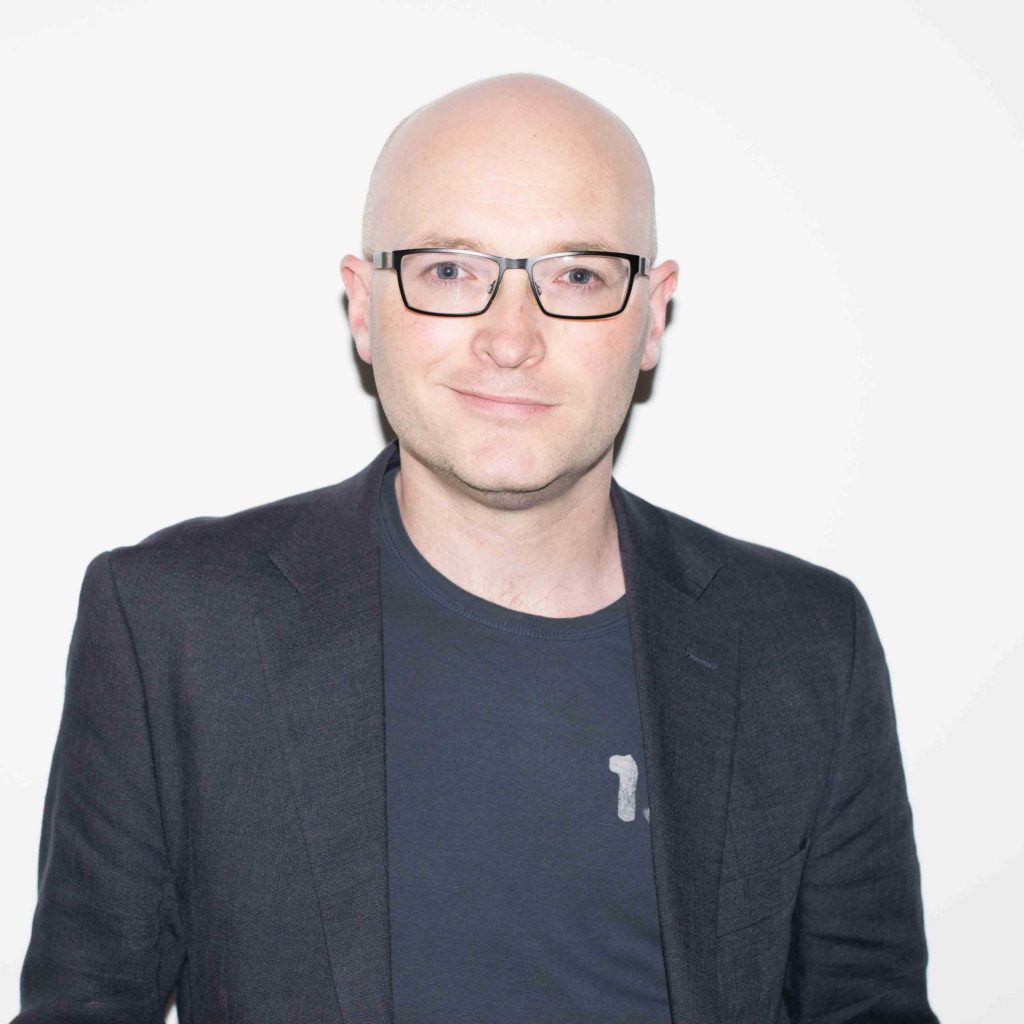Interstellar Business Show
Podcast for Technology CEOs and their teams.
It's time to grow your mind, elevate performance, and own your future 🚀
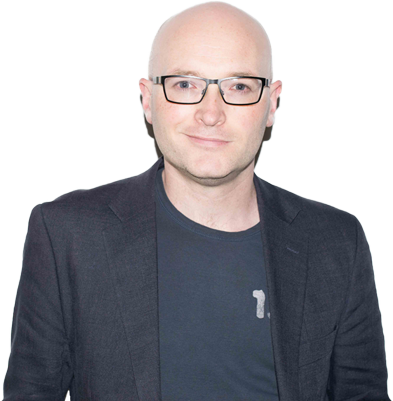
Interstellar Business Show
Episode: 0029
CEO Transformation: Robin Seymour's Story and Tech Recycling
Featuring....
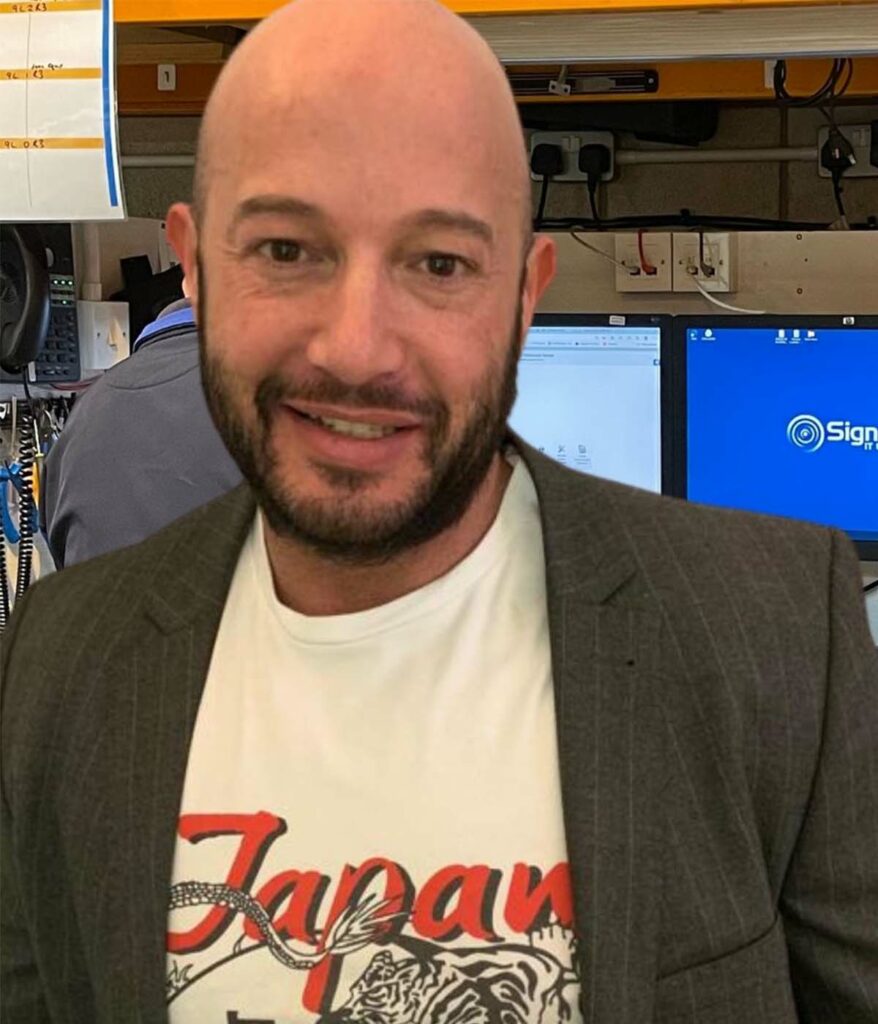
Episode Introduction
According to professor and author Robert Kegan, each of us operates within a different level of mental complexity.
There are three of these so-called mental plateaus
Level 1 — Is the socialised mind…
- where people are team players, who align well with others, and look for direction
Level 2 — Is the self authoring mind…
- where people have a strong and independent view of the world, and seek to solve problems by themselves
Level 3 — Is the self-transforming mind…
- Where people accept that there perspective isn’t always right, where they’re constantly seeking new ideas and transforming how they think
- where people are able to manage contradictions in values and ideas
Why is this relevant to this episode?
Well, this week we’re joined by a Tech CEO…
Who has transformed his mind, his business, and his life…
His story is powerful and I think you’ll find it thought provoking too.
Plus in this episode…
We’ll also be talking about…
- What companies can do to recycle their old tech equipment
- Why many companies are overlooking a wealth of hidden talent
- How our guest was inspired to design a brand new solution for the wellness market
This week’s guest is Robin Seymour – CEO Signals IT Ltd
Episode notes & resources
More about Robin Seymour – CEO Signals IT Ltd
Find and connect with our guest here…
https://www.linkedin.com/groups/12583213/
https://www.instagram.com/signals_it/
Email: enquiries@signalsit.com
Love this podcast episode? Please leave a review here
Listen to more episodes here: Interstellar.Show
Get Andrew’s free Resources for Tech companies with teams → https://bit.ly/2Ygyoij
Join Andrew’s Interstellar Community → https://interstellarway.life/sign-up-for-newsletter/
Transcript
Please note, this transcription is autogenerated, so there may be errors.
[00:00:00] Andrew Bull: According to professor and author Robert Keegan. Each of us operates within a different level of mental complexity.
There are three of the so-called mental plateaus. Level one is the socialized mind where people are team players who align well with others and look for direction.
Level two is to self authoring mind where people have a strong and independent view of the world and seek to solve problems by themselves.
Level three is the self-transforming mind where people accept that their perspective. Isn’t always right. Where they’re constantly seeking new ideas and transforming how they think. Why is this relevant to this episode?
Well, this week I’m joined by a tech CEO who has transformed his mind, his business and his life. His story is powerful, and I think you’ll find it thought provoking too.
Plus in this episode, we’ll also be talking about what companies can do to recycle their old tech equipment.
Why many companies are overlooking our wealth of hidden talent that could be coming into their business.
And how our guest was inspired to design a brand new solution for the wellness market.
Now, before we get started with today’s show and meet our guests, please make sure you subscribe and follow us wherever you’re listening today. So you never miss an episode again.
Welcome to another episode of the interstellar business show. Today, I’m pleased to be joined by Robin Seymour, who is the CEO of Signals IT. Welcome to the show Robin.
[00:01:53] Robin Seymour: Hi, thanks for having me.
[00:01:54] Andrew Bull: Robin, can you tell us a little bit about yourself and your business? What does your business do? What is Signals IT?
[00:02:00] Robin Seymour: Signals IT started about 20 years ago, initially as a box shifter. And then over the course of 20 years is evolved more into services, refurbishment, repair, and recycle of your, typical it hardware. So printers, laptops, label printers, a lot of mobile devices these days, but only for businesses. It’s all B to B.
We deal mainly with national companies. With a lot businesses, in logistics and retail and signals as it’s expanded, has moved into other sectors. We’ve now got two other businesses that 51 T who do your mobile rugged device charges and smart cosign, which is a software for delivery management.
They’re all connected to each other and they’re all in similar marketplaces, but dealing with very different, specific areas of those marketplaces. So still logistics and retail in the main.
[00:02:46] Andrew Bull: So just to clear up my ignorance, what is a box suppliers that shifting PCs?
[00:02:51] Robin Seymour: If you’re a box shift, typically your just be selling the it equipment, the hardware itself. So be a laptop or a PC or anything, but it’s not been touched. So you just adding any value art, you’ve just bought it and sold it usually because you’re able to buy in bulk and sell the competitive prices.
But for a long time, people now expect more and more value for their things. So you might do software updates. You might install certain products in certain parts and hardware into it. You make it far more bespoke based on what the customer needs.
[00:03:19] Andrew Bull: And what has been your biggest achievements then over the last 20 years or, maybe your achievement in reaching this point? What can you look back on now and reflect on and say we’ve done great achieving this.
[00:03:31] Robin Seymour: I think, first and foremost, it’s the last 18, 20 months has been. Tough for all businesses, not just businesses for everyone with COVID and what’s going on there. But specifically we had a pretty heavy run.
My business partner who’d been with, we started a business together. He passed away and that caused my other business partner to to retire early far as the best way of putting it.
He just didn’t want to carry on. It gave him, he had a life of epiphany and just want, wanted to go a different route.
So that left me with those three businesses and approximately just under 30 staff. So luckily from my point of view, I had a good, set of teams. It’s amazing to see how people come, your teams come together.
You really do see when you’re under pressure, whatever that pressure might be in life, personal or business, where you get to see really. So people are going to stick by you and hunker down. And the people in business want to take on extra responsibility and work and grow, and the people that kind of buckle or don’t want to do any more necessarily.
And I’m lucky because I have a great team around me and my core management team and the teams below them and so on and so forth, all literally mocked in we’ve got, we created a big WhatsApp group between us all. And that had a lot of positive thoughts and things going on between us and a bit of banter and whatever else was necessary to keep the flow right and for people to be able to vent about the frustrations when they’re upset about lockdown and so on and so forth.
And that to me has been a key moment everyone is really pulled together and that has helped all three businesses to continue to move forward. Yeah. So that’s probably a very big achievement. And then other achievements along the way have been, not just employing people based on a CV some people to have worked for us who had very poor CV but, you get a feel for person.
You’ll get to know their personality, how much they want something, what their drive is. Motivation. The skill set is very important. So we’ve employed people that just wouldn’t necessarily have had a chance 10 years ago, five years ago, we’ve employed ex Green Berets with very serious PTSD. Employed one person who had swastikas from the neck down from his youth.
So I suppose you’d call that a xenophobe and they were with us for years and they were brilliant they were motivated and, got stuck in. And that was just two stories. We’ve had people with serious illness working with us and stuff who had to have more time off and had to operate certain things in certain ways, or couldn’t work started off in the workshops.
And then as they deteriorated, could no longer work with the more smaller tools and things. And we moved them into other areas and stuff because when you’ve got people who are. When you’ve got a good team around you, you don’t lose that team. You move them around and use them elsewhere and stuff appeal to their skill sets for the best way of putting it.
[00:06:19] Andrew Bull: Do you think as a a business leader, who’s who’s got this amount of experience now that maybe there’s a bit of a problem out in the wider market with how people approach hiring and their focus on these perfect CVS. Do you think there’s a lot of talent that’s being missed out on right now?
[00:06:38] Robin Seymour: Absolutely.
We’ve had an exec director who was a, an it director of a PLC, and there was nothing wrong with him, but he just was in such a different wavelength to us that, whatever he was talking about doing, we just didn’t have the funding to know half the size of teams and operations for him to, put in practice what he was talking about.
But the more low-level stuff, your typical things like running businesses and pay credit control customers. And those kind of things were just beyond his capacity. And it just was, if you’re not careful, you can look, get so excited about someone’s CV or someone’s credentials.
The actually it doesn’t really fit or work in the real world or fit or work in your environment. Whereas when you deal with people who just want to show you and it just willing to adapt and hopefully already have a skillset, even if that’s not something that’s necessarily certified. it’s amazing.
It really is. Not every time he doesn’t all work out every time, but it works out more than 50% of the time. And I think that’s, where you stand. We’ve got a lot of stuff helped. My first member of staff I ever employed came into work for me, literally to help me. Back in the days when I was initially selling boxes and starting things, he’d helped me make sure I got stuff out the door in time for the couriers and stuff.
So it help me doing the packing and the quick testing on the PC equipment, all very basic stuff. 20 years later, he’s still with me and he’s a key engineer and trains and teaches a lot of the new people come on board, both in terms of our processes and in terms of how to take it and dismantle things.
[00:08:05] Andrew Bull: That’s a fantastic story. That really is. That must make you feel proud that you’ve actually to
[00:08:10] Robin Seymour: definitely
[00:08:11] Andrew Bull: that.
[00:08:11] Robin Seymour: Definitely and he’s taken a flex. He had a young family as well. And so over the time of just like I, over 20 years, I’ve now had kids. So did he, and there’s been times when he’s gone to part time through school holidays and things like that. And we’ve just adapted as has he to accommodate because when you’ve got key people, especially ones that really understand and appreciate the business and want to work with the business.
And me and all the other members of stuff you want to keep that team tight. We want to work together. It’s not all just about do this, do it the signal’s way, or don’t do it at all. It’s not doesn’t work that way. Constant evolution.
[00:08:49] Andrew Bull: Yeah, that’s interesting. I think that’s something we have to face up to these days, especially with the breakdown of the division between work and personal life. I mean, just collide all the time now. So needs to be smart about it, right.
[00:09:02] Robin Seymour: Yeah, absolutely. Absolutely. And it’s easy to do when you, with the software development team, because quite frankly, as long as they’ve got internet and a relatively good laptop or PC at home, they can work from anywhere in the world. It doesn’t matter anymore. That’s the beauty of being a software developer, but that won’t work everyone.
So especially at this time when you’re having to be more flexible with the hours, and potentially, move staff around so they’re not colliding with each other , as COVID was going on and things, it really has been interesting to help that evolve and work and manage.
Awesome. So let’s move forward into our next segment of the show, which is called
In this segment, we ask our leaders to share a courageous story or secret that will benefit our audience. What story can you share today Robin?
Okay. Well, I’ve got as always in business and in life just about to turn 46, by the way, you’ve got plenty of stories by now. We all have, but for me at the age of 40 I went through my personal crisis, which was going through a divorce and that had a big impact on me and made me weigh up how I was running my life and what I was doing, what I realized was I’d become a robot.
My life had literally consisted of get up, go to the gym before the kids got for school, get home, get the kids ready for school. Get the kids to school, go to work nine o’clock or just after work a full day. Come home. Put the kids to bed, spend some amount of time with your wife and then probably crack out the laptop or the Blackberry back then or whatever it was and, carry on, do some more work because you want to try and free up some time for tomorrow.
And I became very adept and very capable and more and more efficient and productive at becoming more and more of a robot. And as I became more productive and more efficient, as opposed to using that time, to free up more time for life and for family, or personal time, I spent more of that time just becoming busier and filling it with more tasks and everything in my life just became a task.
And until I’d gone through the divorce, I hadn’t realized or was going through a divorce. I didn’t realize quite how much actually this wasn’t a happy life. Chasing money and chasing retirement and making sure that all the box are ticked and the kids are happy and bathed and in bed and there’s food on the table and stuff.
Those things are vital, but if you’re not careful, they’ll consume you. And I just realized what was the point in everything I was doing it wasn’t making me happy. So I didn’t have the answers of what was going to make me happy. What I realized was I needed to make change and in business and in life I started with having to reevaluate my work life hours.
I knew that I was going to make sure I went to the gym every day. That’s my space that gets me settled for the day. And that was massive. And I realized that half the problem with why I didn’t have enough time was because I was micro-managing to an nth degree and I took the time.
Spend some time with managers pass on responsibility, discuss what their skill sets were, learn, what they want your team actually can, and can’t do what were they’re employed for, what else they want to do, what else they can do or don’t want to do. And pass that around, spread that through the team Platy team strengths and stuff, and it freed up massive amount of time.
The amount of stuff that whether I thought I could do it better or faster, whether I’d invented the process in the first place, because I started the business and was doing it originally by myself or not. It had a profound effect , it was massive for the team, the morale went up massively because people love responsibility.
And with responsibility to the obviously means they can earn more. And there were more in control for their own destinies as well. And from my point of view, it freed up more time for me to focus on the bigger picture, whatever that might be of what the, whether that’s the new products or new services or for signals or whether.
New things that I’m doing myself such as Therapology. And, that really was very fundamental, but it all happened, everything’s happened subsequent based on this desk, what I call life crisis.
[00:12:58] Andrew Bull: Would you mind elaborating on what Therapology is?
[00:13:02] Robin Seymour: When I started going through the divorce, when I realized that I wasn’t coping. I started looking for counselors, psychologist, whatever you want to call it, whatever level they’re all got different levels. But I started looking at the first counselors and moved on and off.
And the problem is your first port of call. I’ve only finished. You go to look online, so you do your searches and there’s a million of them out there. Just like looking for a gym. There’s a million gyms out there. And there’s a million PTs out there and so on and so forth. But the difference is with a PT.
As I’m using that as an analogy, you can go on their Instagram or their Facebook, and you can see the different reviews. People of Portland. You can see this hair is Robin when he was 10 stone and here he’s robbing. Now he’s 13 stone. Although the way round here is someone who was 25 stone. And now he’s half that way in the space of 12 months.
And you can measure and get a vibe of the personality and the kind of people that train with it when you’re looking at PTs, but with counselors and therapists and stuff, you can’t do that because they’re fake. Yes on Instagram, whatever they can publish, what their opinions are and their different ideas about stuff.
But they’re not going to publish results because no, one’s going to be a Guinea pig saying, here’s what I’ve been broken. Six months later, I fixed them or so it’s very difficult for them to promote themselves and by being difficult for them to promote themselves and explain how good they are about their or public it’s not like some way you can read reviews and scores there’s not an eBay.
It, the same happens. Yes. It’s not good for them, but it’s also not good for you. So you, you, should end up just trying a few based on how I’ll give this person to try. They’re not far from me and I’ll give this person to try for whatever else. Or you might even speak to friends who have you used any.
And so I actually went through four or five different therapists and two or three of them upset me more. One person, one, one person in particular, I’m actually talking to them and they burst into tears and just said sorry, I’m quite an emotional person. And I’m quite a, kind of the word cry and pathic was the word she used.
And I just said, I’m sorry, I can’t handle that now. Cause that’s kind of reinforcing how my upset is. It’s passing it back to me as I’m in a very sensitive place at the moment. I don’t need that. So in the end. I just went looking for a psychologist and with as many letters as possible after the name and that person worked for me, but that was complete fluke.
And that was just fortunate. But I tried the doctor and mind health, I think was who they were using. I can’t remember exactly now was a six month waiting list. And I said to the doctor at the time, I remember saying I’m in a bad place and I need help, but I’m not in a dark place. If if I was in a dark place, I might not be here. In six months, surely this is not acceptable. They said, I’m very sorry. It’s just the way it is. Your only other option is to go private. So that’s when I started looking for myself. So anyway, through my period of time, I suddenly realized there was a whole space head, not a money-making scheme, a genuine space here for people where they can find.
Therapists and get a feel for what’s going on and stuff. And so I created your thorough pology to make it more like an Uber type situation where you can go on there on an, on a initially it’s a website, but it will be a mobile phone app. You can choose your therapist and narrow down by whatever circumstances, whether you want to do it online or face to face.
What it never might be because some therapists might be great at helping you deal with. Well crisis is although therapists might be a lot more of a life coach and so on and so forth. So strange people might want to deal with one specific gender or specific age group of therapists.
It’s not about monetizing or commercializing as about making it. So it was easier for therapists to get to market and easier for people like me. Or you or anyone to find a therapist get some kind of basic metrics that can help decide what works.
[00:16:41] Andrew Bull: Awesome.
[00:16:42] Robin Seymour: But it’s born of of, a necessity I feel.
Fantastic. I mean, it’s always great when a product develops from a genuine need and obviously based on something that you needed or felt that there was that absence in the marketplace. So I think that’s fantastic. It’s all organically developed from that.
[00:17:01] Andrew Bull: Let’s move on to our next segment of the show, which is called
In this segment of the show, our guests will share an idea that will help you, the listener elevate your business, your mind, parts of your life. the big idea that you want to share today?
[00:17:18] Robin Seymour: I’m in IT and environmental is becoming more and more if it’s not already top priority. So we recycling repair refurbishment, and the current way of managing these things. And if possible, from a business point of view, how to do this as minimal costs or even better turn into a positive. So it’s not actually costing you anything.
And I think more than ever now, investors are also looking into this now and they’re measuring people on their sustainability, their company, sorry, on their sustainability and also on their environmentalism. From my point of view, we’ve really pushed this in signals. And we’re really having had great success, especially over the last couple of years with our kind of best way to put it down is your buyback plum, which is what we’re doing and what we’re pushing.
Any company to do is to start trying to clear 25 to 50% of the. Of the product, getting back through recycling, they want it back and they want us to repair it and refurbish it back to them or whether they, whether we’re just going to try and find a new home for it.
[00:18:17] Andrew Bull: Do you think this is the way the market’s going to go. We’re going to move away from people just buying stuff. I’m putting the old stuff in the skip, so to speak to ashy stuff, being made to last and be being made to be fixed and made good again.
Do you think that’s the future?
[00:18:34] Robin Seymour: I don’t think things are being made to have a short life, but I think inevitably, especially with it processes, getting a faster software is getting bigger. Windows 10 windows 11 have significant requirements compared to previous versions of windows, which will force. You might say forced obsolescence.
I wouldn’t necessarily say that, but they force people who want to stay either cutting edge, whether, because they need it or because they’re a bit like me and they like to be the Crytek and they liked to have the newest flashiest thing is forcing businesses to upgrade. And sometimes that’s an upgrade of a full box.
And sometimes that can be just an upgrade of certain hardware within that box, depending on what that box might be. Would that be a laptop or a server or, a PC. So the way sales are going is it’s not necessarily a case of things have been made to not last as long.
I think things have just got as good, a quality build as ever. Your mobile phone still does the basic things in terms of how the phone call books, if you want to keep on top of making sure that it opens up apps quickly and has all those other things that are going on and doesn’t glitch, you’re going to have to, at some point, accept that if you’ve had four years out that you’ve done well, if you have two years out of it, that’s kind of average.
[00:19:41] Andrew Bull: How do you think businesses need to approach this situation then? What, do they need to do to face up to this challenge of plastic pollution, but staying on top of technology and making sure that apps open promptly.
[00:19:54] Robin Seymour: The thing is? There’s a lot of companies out there who specialize in. Recycling and repair or different divisions within that. So you might have someone who you send a laptop into them, they’ll replace it, the brand new parts and send it back. And if those parts aren’t brand new parts aren’t available anymore, because either laptops too old or just because they’re in constraint, then effectively that laptop becomes defunct.
And then the. Chucking it away or hopefully recycling it and then buying a new one. So what we tend to do is we do, especially with, because we’re dealing with businesses who potentially have at the very least, let’s say 10 laptops. As an example, they might send in 10 laptops that are broken with different things, wrong with them.
Have 10 laptops. Hopefully we can parts harvest and make seven of them suitable, maybe more. And just to explain what parts harvesting, that’s the case of where. If, you’ve 10 laptops and one’s got a broken screen and one’s got a broken keyboard, in theory you can take the one with the good keyboard. And put a good screen in it and I’ll make it work.
So your switch parts from one to the other, and you will end up with less waste because you’ve saved seven laptops and then dealt with three , whereas if you’re gone and bought new parts than all the broken parts would have been disposed of and potentially more than that or the whole thing potentially could have been written off if not available.
It’s a cheaper way of doing repairs. It gives things longevity because the parts are more available. And from our point of view, we’re bringing down costs massively to customers for that. And what we’re doing is some customers are doing that and having it as a refurbishment plan and taking them back from us and we’re charging them for that process.
And some customers don’t want those products back, but the point is, we’ll remarket them and resell them to someone else. And then we’ll do a profit share. Which will then be in the form of a credit, which they can then use to purchase either new services or new hardware from us. So it’s very straightforward.
[00:21:41] Andrew Bull: Okay. Awesome.
What are the first steps that regular businesses can take if they want to be a bit greener with their old equipment?
[00:21:48] Robin Seymour: Well, we started a LinkedIn group called official e-waste management group. I think I’ve got that off the top of my head. That’s a good place for business leaders to go and get plenty of advice and processes and how to follow processes and things. They’re also welcome to contact signals and we’ll either manage it for them or give them a bit of guidance.
But the key point is . If they’ve got items that are broken, physically damaged out of warranty, doesn’t necessarily mean it’s end of life. And they should look at ways of either reusing. Or making sure it goes to a new home and we can take care of that. That’s what we’re finding is, a major area for us.
It’s important for all businesses to get involved in this. It’s important for everyone to get involved in this, but if it starts at base level with businesses, it can only go from there.
We’ve got 25, 26 staff and that’s 25, 26 PCs or laptops, so when we do a refresh or have failure on those things I know we’re an it company, but in theory, any business they will still be of use to someone, somewhere.
[00:22:48] Andrew Bull: Yeah.
and I think it is important because now they’re saying plastic pollution is everywhere. They’re finding it in the Himalayas and all these crazy places where you wouldn’t expect it to be. And it’s such a problem. We’ve all got to take action.
[00:23:02] Robin Seymour: Yeah. Yeah. And then just to clarify, when we, when something is deemed true waste, when we’re ended up with, as we are, obviously we do obviously end up with things that are obviously beyond economical repair, impossible to repair or just end of life that just know, you’ve had the day fifth on that road and it’s time for them to retire.
Then those things do get taken apart and sent to their correct places. So plastics go for granulation into the right places and it all goes through the correct we processes, that is environmentally as, government requires, and as we can manage and we keep a very close eye on that because there’s no point his preaching and not practicing. So once we got. True waste from all the recycling and refurbishing of products, we don’t then send out, but just willing to just go anywhere, end up in landfill, but then he’s then taken care of correct correctively and sense of relevant parties for the metals, the plastics cause PCs have metal cases as well.
There’s metal parts in them and things like that. So everything gets separated and since the appropriate places, cables in one direction and so on and so forth.
[00:24:04] Andrew Bull: Fantastic. All right, let’s move swiftly forward onto our next segment on the show, which is called
in this segment of the show I like our guests and leaders to share how they’re staying empowered and owning their future the actions they’re taking every day and in their life. How you doing it Robin?
[00:24:25] Robin Seymour: Constant communication with team members. I start each day by checking my emails. Before I go to the gym, before I do anything I do that while I’m having breakfast. And then that way it sets the tone for the day. If there’s anything vital, I’ll move the gym. If there isn’t anything vital, I can get straight to the gym, which that’s my mindset for the day.
They get the endorphins, go in, get a winning I’ll go and do something in there. That’s for me, it’s my time where I’m zoned out and it starts my day. And then from the rest of the day, I can then power forward and deal with anything goes on simple as up or keeping such with the staff with, we got lots of different WhatsApp groups and teams groups as well, which really, I think communication is absolutely key.
Over communication can be a problem. But I think the beauty of those messages is it’s not over communication and it means you can pass one message out to multiple. And that really makes a big difference to us because we’ve got a lot of staff working on team members work. Around different buildings moving between our different units, working at home, especially at the moment or in general.
And so all those different messaging things, it worked perfectly between mobile, devices and PCs.
[00:25:28] Andrew Bull: And that’s a really important point about the over-communication because Yeah, if when you end up with a huge slab of an email in your inbox, it can be hard to. Process and to
deal with that when you’ve got so many other things to do. So I love the idea of about just using these short messages to communicate.
[00:25:46] Robin Seymour: Perfect example, if I get long email now I’m literally, I actually sometimes have to resort to printing gear, getting a highlighter out, to find the key points. It’s just how you have to deal with different things to break it down, because I just need to look at the key points.
The bullet points, I can’t sometimes get too granular about anything. from my point of view, it’s all about focusing and keeping your team in the loop. And that is the key of day-to-day business. For me. If I don’t communicate my team, I know that will carry on regardless. It’s not about a control thing.
It’s about a case of making sure everything’s moving in the right direction. It’s about momentum.
[00:26:17] Andrew Bull: Love that. Right. And do you also mentioned before we were talking on the show about how important for you personally is to reflect on your week and the things that have happened for you? Can you explain a little bit about that?
[00:26:30] Robin Seymour: It’s very easy in life to, and I’m guilty of as myself, pretty being faulty of waiting for the magic to happen and waiting to bump into that pot of gold or win the lottery or land some big deal with a customer, or something massive, magical to happen.
And all the little things that happen take day. You might be oblivious to it. You might not even notice because you’re looking at these big things. And I was definitely guilty of that. I was guilty of that, my running and my training and things, I’d go for a run. And the minute I finished the run I’d be like “right I’ve just done that 10k in 50 minutes, I wanted to do it in sub 50 minutes.
I’m not happy and didn’t enjoy what I was doing. And it wasn’t taking stock of the little things that happened and what I do. I don’t know, I used to do it daily and I do try and do it daily, but sometimes it will slip to twice a week or three times a week where I’ll sit back, especially if I’m feeling a bit low or a bit overwhelmed, or not quite as positive as I like to be and want to do is just reflect on the different things that have happened that God wins or things that haven’t gone bad, and it could be something as simple as the fact that you’ve found a pound or you’ve gone to use a drinks machine and it’s popped you out a can of coke zero for free or, you’ve dropped your toast on the floor and it’s not gone butter down, butter face down. I mentioned to you before my cat got run over and he made it home and he says, Hey, so that was a win.
He could have died there. And then, but he made it home. He’s actually virtually, fully recovered now, but he has to have an operation. But the plan was when the kids were freaking out, said recognize the positive. He came home to be with us, no matter what happened next, fact he’s only.
That’s a bonus, but it’s about, you’re not always going to find a positive anything, but I think if you reflect, you can reflect on the few things you did wrong or more close than you can reflect on the few things that went right. A few of those random little things that happen that you just didn’t expect.
It’s a shame. I actually can’t think of what right now, for what’s happened so far this week, but by the end of the week, I will do, but it just really is those little things.
[00:28:22] Andrew Bull: Yeah.
it’s important to take time to appreciate. What we’ve got, because it can really ground us in our current situation as well. I think because so much is set up to make us kind of feel inadequate and that we haven’t got enough you know, the marketing and advertising and TV shows where everyone looks perfect all the time
[00:28:44] Robin Seymour: absolutely.
[00:28:45] Andrew Bull: can make you feel insecure and inadequate.
And that’s a big part of how social media kind of works as well, the
[00:28:50] Robin Seymour: Yeah.
[00:28:51] Andrew Bull: emotional casino of it. So I think the way we can find that, like you say, is appreciating and reflecting on the, on the
good things that we.
[00:28:58] Robin Seymour: It was something that when I was going through counseling was something that was very important to them to keep reflecting on I didn’t go to that cause it was a happy place. I went there because I was needing help and Mesa. You’re just not paying attention to when your little magical things are happening and it can be anything it’s trivial.
How many times have you been in the bathroom and not your phone? It’s nobody got in the bath or nearly got in a toilet stop and it didn’t. And it’s like, okay, well actually bloody hell. That was lucky. That’s just saved me. Not just necessarily financially afford to put the hassle of changing phones and sorting out.
And the arguments with whoever your mobile provider is or whatever. And it’s just like brilliant, or the other week I went to the gym and when I came out the gym, I nips and whites pickups from some food. And I can help them a wallet. And luckily I have a mobile phone on me, so I could use a wireless pay, but it’s a case of that’s can be so easily overlooked.
But for me, it was a case of I remember one time when I was a kid, actually my mom asked him, my watch was before mobile phones, I’d film a color Petro. I’m not, but didn’t have any money with me then how it happened. I can’t remember now. So going to go, I remember the guy said, I recognize you. If you leave your watch here, I know you’ll come back for it.
It wasn’t a fancy watch. It was just a Casio or something book. I’ll have to leave my watch and go home and get money and come back. I didn’t have to do that. I just paid my mobile phone and it’s those little wins. don’t know, to me those, things, I’m now making them count simplest lap.
It’s those same moments that you got that were of a grander scale. When your kids first did the first walk or set the first word and things like that.
[00:30:27] Andrew Bull: It’s so easy to miss the good things and you really have to look and hunt for the good, otherwise it can seem like your life is just full of negative. I think you have to fight the good fight with that regard. I think that’s such a brilliant place to, to wrap up this Interviewing conversation cause I really loved that thought and that energy that we’re ending the interview on.
Let’s just move forward into the last segment of the show, which is called
this is where our guests reminded. Of the big takeaway you can take away from today’s episode. So what should people take away from listening to the episode?
[00:31:03] Robin Seymour: Well, apart from my madness into a reflection and keeping going to the gym and all these other things and routines and whatever . The key points for me now are, this is about which is recycling.
And environmentally, we’ve got to do more things for the world, for the planet. And it’s so easy for us to do from a business point of view just literally, and especially if we can only actually turn those things, you’re getting rid of back into money or even better know that they’re going to a home somewhere.
It’s a shame when a product has to die. It’s simple as that. I know that sounds really daft. I know it’s an animal object, but when something’s been built to do a certain task and it reaches the end of its life, that’s kind of sad moment. And just think if you can give it that bit, that extra long life or, donor some of its parts or the devices so that they can continue and they can continue then.
So be it. So my answer is have a look at our LinkedIn group and by all means, get in contact with. Using email, phone website, but just start planning to get, your products, moving sinus shelf or sinus stock room. You don’t need any more or you’re not using anymore or a broken. Get them into that in the back in circulation where there’s backing, refurbished and repaired and back into your place or, into a new home. Simple as that.
Thank you.
[00:32:26] Andrew Bull: My thanks to Robin for being such a courageous and thought provoking guest. Robin’s experiences and ideas really resonated with me.
Especially the part about how we often focus on the bad things in our lives. And never take time to appreciate the good things that are happening around us.
and I’ve got a story that illustrates that point.
Recently, I went to my local pool to do some lane swimming
I got changed and put my clothes in the locker. Now this locker was one of those that needed a coin to lock it.
And I was carrying one with me. I mean, who carries a lot of coins these days? So I was just carrying the one.
Well, I bet you know what happened next. I put the coin in the locker. And it just swallowed it. The local wouldn’t sharp. And I was stuck. Changed and ready for my swim, but not able to go and start swimming. I did a bit of physical negotiation with the locker. But the coin still wouldn’t drop out.
I was about ready to give up.
And then I got a second wind and started fiddling around with the lock some more. And I found this weird small lever on the side. I have the lock and I pulled it. And then my coin just dropped out. And I was able to go for my swim after all.
Putting my clothes in another locker, of course.
Now this was just a small victory. But my conversation with Robin reminded me of the importance of appreciating the small, positive moments in our lives. Rather than overlooking them. And fast forwarding to the next thing. And being appreciative is something I’m actively working on in many aspects of my life. And I think you should be doing the same too.
Why should you care about appreciation? Well, appreciation is a powerful force. It can help you feel more positive and optimistic about the world. In a weld of 24 hour negative new cycles. I think that’s very important. And it also helps us to remain balanced and rounded. Life isn’t all bad. There is a lot of good that’s going on around us.
Now here’s two easy ways to get started with appreciation in your life. Idea number one. Every Friday, or in fact on whichever day that suits you, but do it one day a week on the same day. And Friday is a good one. Cause it’s the end of your working week normally, on that day, right. And appreciation list, a list of everything that you’re grateful for for that week. Those can be small things or big things that go on the list. And the next idea is consider showing your appreciation to others by paying a compliment. Or by simply saying thank you to someone. It could be a very powerful act.
Now don’t forget if you’re serious about elevating your team’s performance, you need to grab a copy of my book, monsters of team performance. You can join the waitlist@interstellarway.life. Just put that into your browser interstellar way.life, and you’ll be able to find the link for reserving a book and joining my waitlist. Now if you haven’t already done so hit that subscribe or follow button wherever you’re listening today. And all I’ve got left to say is thanks for being here. Have courage own your future. Take action.

